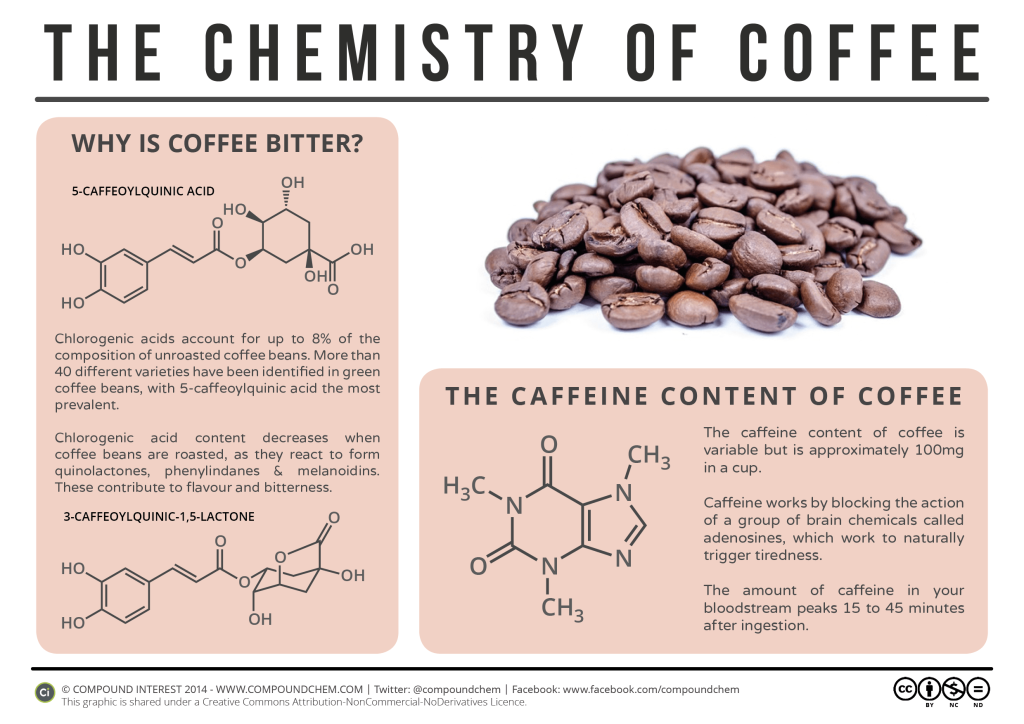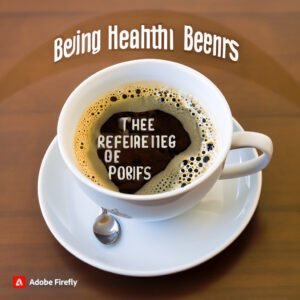“Brewing Health Benefits: The Remarkable Powers of Coffee”
Coffee, the aromatic elixir that awakens our senses and fuels our mornings, has long been a staple in our lives. Beyond its delightful taste and energizing effects, coffee has gained significant attention in recent years for its potential health benefits. In this comprehensive article, we will delve deep into the world of coffee and explore how this beloved beverage can have a profoundly positive impact on our health.
The History of Coffee: From Ancient Origins to Modern Sensation
Before we embark on our journey to uncover the health benefits of coffee, let’s take a moment to explore its rich history. Coffee’s story begins in ancient Ethiopia, where the energizing properties of the coffee bean were first discovered. It wasn’t until coffee made its way to the Arabian Peninsula that it became a cultural phenomenon. Over time, coffee houses, known as “qahveh Khanh,” began to pop up in Persia, serving as centers for intellectual and social interaction.
In the 17th century, coffeehouses reached Europe, sparking a wave of creativity and discourse among artists, writers, and thinkers. Today, coffee is a global phenomenon, enjoyed by millions worldwide. Its rich history and cultural significance make it much more than just a beverage; it’s a symbol of community and connection.
The Chemistry of Coffee: A Magical Brew
Coffee’s mesmerizing aroma and bold flavor are the result of a complex chemical composition. The primary source of coffee’s magic is the humble coffee bean, which is actually the seed of the Coffea plant. These beans contain a treasure trove of bioactive compounds, each with its unique role in promoting health. Let’s explore some of these compounds and their potential benefits:

1. Caffeine: The Energizing Force
Caffeine, perhaps the most well-known component of coffee, is a natural stimulant that can increase alertness and concentration. It achieves this by blocking the action of adenosine, a neurotransmitter responsible for promoting sleep and relaxation. Caffeine’s stimulating effects can help us power through the day and stay focused on our tasks.
2. Antioxidants: Nature’s Disease Fighters
Coffee is a rich source of antioxidants, including chlorogenic acid, quinines, and polyphenols. Antioxidants play a crucial role in neutralizing harmful free radicals in the body, which can cause oxidative stress and damage to cells. By reducing oxidative stress, coffee may contribute to a lower risk of chronic diseases.
The Heart of the Matter: Coffee and Cardiovascular Health
1. Lowering the Risk of Heart Disease
Numerous studies have suggested that coffee consumption is associated with a reduced risk of heart disease. The antioxidants in coffee help protect blood vessels and reduce inflammation, potentially preventing the build-up of plaque in arteries. Additionally, moderate coffee consumption has been linked to lower rates of stroke.
2. Regulating Blood Pressure
Contrary to the belief that coffee raises blood pressure, moderate coffee consumption may have a mild, short-term effect on blood pressure. However, for most people, this effect is minimal and temporary. Some studies have even suggested that regular coffee drinkers may have a slightly lower risk of developing high blood pressure over time.
A Cup of Comfort: Coffee’s Impact on Mental Health
1. Boosting Mood and Reducing Depression
The energizing effects of caffeine can provide a much-needed mental lift, helping to alleviate symptoms of depression and boosting overall mood. Some studies have found that coffee consumption is associated with a lower risk of depression and a reduced risk of suicide.
2. Cognitive Function and Alzheimer’s Disease
Coffee may offer protection against age-related cognitive decline and neurodegenerative diseases like Alzheimer’s and Parkinson’s. The caffeine and antioxidants in coffee may help maintain brain health, improve memory, and reduce the risk of these debilitating conditions.
Coffee as a Guardian of the Liver
The liver is a vital organ responsible for detoxifying the body and processing various substances. Coffee appears to have a protective effect on the liver, reducing the risk of liver diseases such as cirrhosis and non-alcoholic fatty liver disease (NAFLD). Regular coffee consumption has also been associated with a lower risk of liver cancer.
The Elixir of Longevity: Coffee and Life Expectancy
Several studies have suggested that coffee drinkers may enjoy a longer life. The combination of antioxidants and other bioactive compounds in coffee seems to exert a positive influence on overall health and longevity. It’s important to note that these effects are more pronounced in moderate coffee consumption and not in excessive intake.
Coffee and Diabetes: A Complex Relationship
While the relationship between coffee and diabetes is multifaceted, some evidence suggests that coffee may lower the risk of type 2 diabetes. The antioxidants in coffee may improve insulin sensitivity and help regulate blood sugar levels. However, it’s essential to consume coffee in moderation and avoid excessive sugar and creamer additions that can negate these benefits.
A Word of Caution: Coffee and Its Potential Downsides
As with any dietary component, it’s crucial to strike a balance when consuming coffee. Excessive coffee consumption can lead to negative side effects, including increased anxiety, jitteriness, and disrupted sleep. Additionally, some individuals may be more sensitive to caffeine’s stimulating effects and should limit their intake.


Conclusion: Sip with Satisfaction
In conclusion, coffee is much more than a morning ritual; it’s a beverage with a remarkable array of potential health benefits. From protecting the heart and liver to boosting mood and cognitive function, coffee has earned its place as a beverage that contributes to our well-being. However, moderation is key. To maximize the health benefits of coffee while minimizing potential downsides, aim for a moderate intake of 2-3 cups per day.
So, the next time you savor your morning cup of coffee, do so with the knowledge that you’re not only indulging in a delightful brew but also giving your health a little boost—a heartwarming and invigorating combination that makes each sip all the more satisfying.






